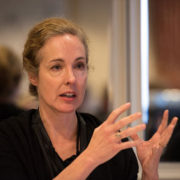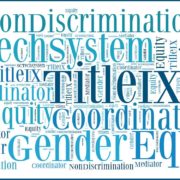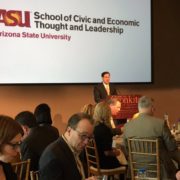Notes from the front line of art-science crossover education.
At a meeting around 13 years ago, I talked with colleagues about how the scientific landscape had changed with the rise of publication metrics (e.g., publications per year, citation counts for individuals, and impact factors for journals). We agreed that we needed to fight against the detrimental effects of metrification.
Well, that was then. However, I recently found a note on my laptop that I meant to send to those colleagues but never did. It reminded me that my fight was a short-lived failure. It also triggered a realization as to the cause of the failure.
Note from 2010ish …
“Here’s a beer bet I wonder if anyone wants to agree to. It’s a personal bet between me and me at this stage – an experiment. I have become obsessed with what I was never a fan of, “Bean Counting.” So, in a personal Zen-like fast, I want to see how long I can go without checking any citation statistics. I will update my vitae, remain active and produce science, but I will resist tracking metrics. I started on January 1 and am still living clean (it’s now September). I found it hard going at first and told myself the desire to check my metrics was to see who was doing similar work, its usefulness, and other justifications that fell short of reality. The exercise has isolated lies I was telling myself about why I wanted to check the numbers.”
Jump to Today: I had forgotten the note above until 2020 provided an unexpected break from my usual “to-do job list.” Finding the note was a bit of personal archeology. My memory came back to something I had blocked out. My bean-counting fast failed. While in the fast, my department chair stated that all of us should open a ResearchGate account. ResearchGate is a commercial social networking site for scientists and researchers. It lets papers be shared, but it also tracks metrics.
I opened a ResearchGate account and quickly fell from grace. I reverted to tracking my productivity metrics with what I can only describe as a drug-like delight. Unfortunately, the delight was mixed with associated hangovers and emotional letdowns. I fell back to comparing my metrics against others as if that would provide some satisfaction. Often it led to the opposite.
Why would I be so quickly drawn back to something I do not value? How could I become so quickly re-obsessed with something that might cause cheap delight but comes with the price of feeling bad about myself?
I could say I need to do some professional things I disagree with ethically to survive in my field. However, that’s not really the real reason. The reason I came to is that I had become an addict. I offer no solution other than seeing an addiction may be a start toward controlling it. From what I know of addiction therapy, a key aspect is to realize ‘once an addict, always an addict.’ That is, there is always the potential of falling back into an addiction if you do not remain unaware.
My 2020 looking up from my usual job tasks also got me researching what others have said about changing landscapes that come with the metrification of science and, more broadly, academia. Much of the metrification is driven by universities moving toward corporate operation models and associated privatization of what were once public goods. That research has continued, at varied cadence, to the present day.
It led me to run across a quote in 2023 that crystallized some thoughts and led to this essay. The quote comes from someone outside my field who also experienced self-realization about tracking their citations. It comes from Michael Billings, Learn to Write Badly: How to Succeed in the Social Sciences (2013):
“Why, I might ask, am I bothering to find out how many times other academics have mentioned my work? And why do I feel pleased if the number is high? What difference does it make? It doesn’t matter how the others mention me, whether they do so in passing or at length, whether in complimentary or critical tones. All that matters is that I am mentioned again and again. It gets worse. Sometimes, I have compared my scores with those of others. I will be pleased if I am mentioned in more articles than they are, and my mood will be spoiled if their numbers surpass mine. It is as if I am pathetically pleading with the academic world: ‘Please, please mention me; you only need to mention me in passing; just drop my name; I don’t care where or how; just mention me, please; oh, and don’t bother mentioning Dr. X or Professor Y.’ Do I really think like this? Do I really care about the numbers? Yes, I must do. What a knobhead.”
What a knobhead, indeed – I am speaking of myself. I have not met Michael Billing, so I do not know this for sure, but I wonder, based on my own experience, if he saw calling himself a knobhead as a step in the right direction. When I read his excerpt and said it about myself, I felt somehow good. Like I wasn’t hiding from reality anymore. Like I was done playing games with myself to convince myself that my looking at numbers was somehow out of my control or was just part of being a professional. Addicts often play feel-good games with themselves. Will seeing that help me control an addiction? I don’t know. Time will tell.
Maybe my fall into metrification obsession is singular. Having spent time around academics, I suspect not. Our academics are good at seeing ourselves removed from the realities of the every day—for example, social media obsessions. We can bemoan how the need for likes to justify opinions on one’s social media is detrimental to knowledge exchange. At the same time, we can ignore isomorphic behaviors in our professional lives. If admitting it is step one, then maybe step two is collectively admitting it.
Can we start ‘Metrification Obsessed Academics Anonymous’? The organization’s goal would be for the group to help each other from falling back into addictive patterns.
I would benefit from being told, “You’re drifting back into knobhead land,” if, for example, my reviews of research papers started unfairly insisting that my work be cited (because that ups my metrics). Equally of value, perhaps more so, would be the academic equivalent of Al-Anon for friends and family of performance-metric-obsessed academics.
_________
Cover artwork courtesy of the musical group Ministry.



